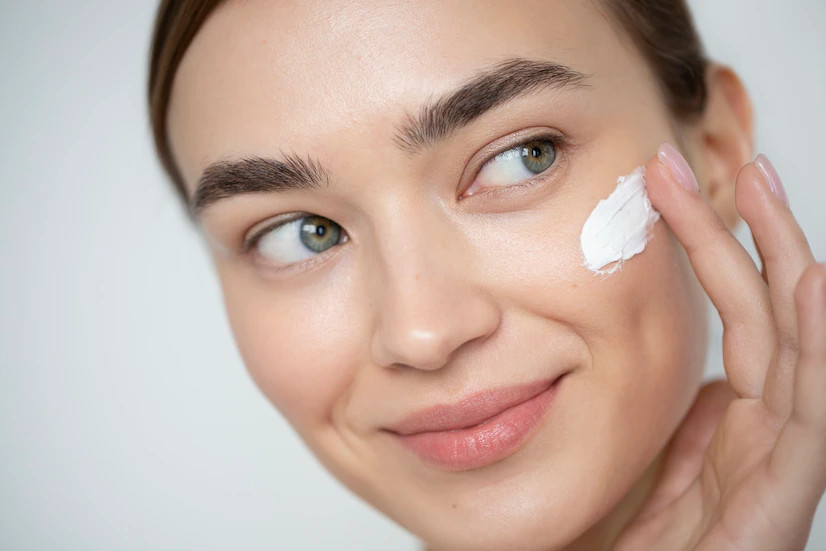The protection of body cells from free radical-induced cell injury is a benefit of antioxidants. Astaxanthin is a popular antioxidant that has been frequently consumed in recent times. Astaxanthin consumption has been reported to have numerous advantages for skin health. What is astaxanthin, and what are its skin benefits? Check out the following review.
What is Astaxanthin?
The reddish pigment astaxanthin is a nutrient in the carotenoids family. This chemical, which is commonly present in yeast or algae, is what gives reddish-colored seafood like salmon, shrimp, and trout their unique color.
The plant chemicals known as carotenoids also include lutein, lycopene, beta-carotene, and pro-vitamin A. Like other carotenoids, astaxanthin is considered to have antioxidant and anti-inflammatory effects. This molecule lowers oxidative stress and inflammation in cells, therefore preventing or delaying the onset of several diseases.
Read more: An Antioxidant Rich Fruit Choice
Astaxanthin: a natural way to improve your health
In recent years, there has been a significant increase in the consumption of astaxanthin as a tool for maintaining healthy skin. It is considered that Astaxanthin, a high-antioxidant supplement, can prevent wrinkles and enhance a person's youthful look. Research has confirmed the following health benefits of astaxanthin:
Maintain heart function
In 2000, a study performed in Japan revealed that 24 adults who consumed astaxanthin on a daily basis experienced a reduction in low-density lipoprotein (LDL) levels after one year. This study marked the beginning of the use of astaxanthin for cardiovascular health. There is a significant decrease in LDL as the dose of astaxanthin consumed increases.
The antioxidant effects of astaxanthin may have cardioprotective effects, according to a 2014 study. Astaxanthin, an antioxidant, significantly reduces the risk of atherosclerosis by eliminating free radicals that injure blood vessel tissue.
Read more: Rich In Antioxidants, This Is A Benefit Of Consuming Seaweed
Maintain blood sugar levels
According to a study, astaxanthin can enhance the body's insulin response and decrease the risk of developing type 2 diabetes. In 2018, a study published in the journal Asia Pacific Nutrition reported that people who consumed 8 mg of astaxanthin daily for 8 weeks experienced a decrease in abdominal fat, LDL, blood pressure, triglycerides, and fructosamine. However, the study did not reveal a reduction in blood glucose.
These findings indicate that astaxanthin may not significantly affect the treatment of type 2 diabetes, but it may help decrease several risk factors that can contribute to problems associated with the condition.
Preserve the health of the brain
The risk of brain-related diseases like Alzheimer's is increased by oxidative stress. Adults who consumed astaxanthin in a clinical trial demonstrated fewer mistakes in a maze test as well as faster reaction times in computer-based memory and thinking tests. These findings suggest that astaxanthin has the potential to enhance cognitive function.
Improves the immune system
Astaxanthin consumption is also believed to boost the immune system. Astaxanthin has the potential to activate natural killer (NK) cells and white blood cells (T cells). NK cells act more rapidly and do not require activation to prevent the invasion of foreign cells that can affect your health, despite the fact that T cells attack foreign cells based on antigenic markers.
Maintain skin health
A peer review found that astaxanthin may protect skin from UV light-induced oxidative damage with antioxidant effects. In the peer review, several minor studies supported astaxanthin for skin health, including:
- Increases skin elasticity and moisture
- Reduces redness on the skin
- Reduces wrinkles
There have been some studies that show that astaxanthin can be useful, but there are still not many of them. You should talk to your doctor before taking astaxanthin to treat health problems like diabetes or high cholesterol. If you need medical advice or consultation, you can either visit a doctor or make use of the consultation features that are available in the Ai Care application by downloading the Ai Care application from the App Store or Play Store.
Looking for more tips and tricks for health, first aid, and home remedies? Click here!
- dr. Alvidiani Agustina Damanik
WebMD Editprial Contributors. (2022). Health BEnefits of Astaxanthin. Available from: https://www.webmd.com/diet/health-benefits-astaxanthin
Phan, R. (2023)l Astaxanthin: Everything You Need To Know. Available from: https://www.verywellhealth.com/astaxanthin-uses-side-effects-precautions-storage-7507313
Lehman, S. (2020). 3 Health Benefits of Astaxanthin. Available from: https://www.verywellfit.com/a-is-for-astaxanthin-2507067











